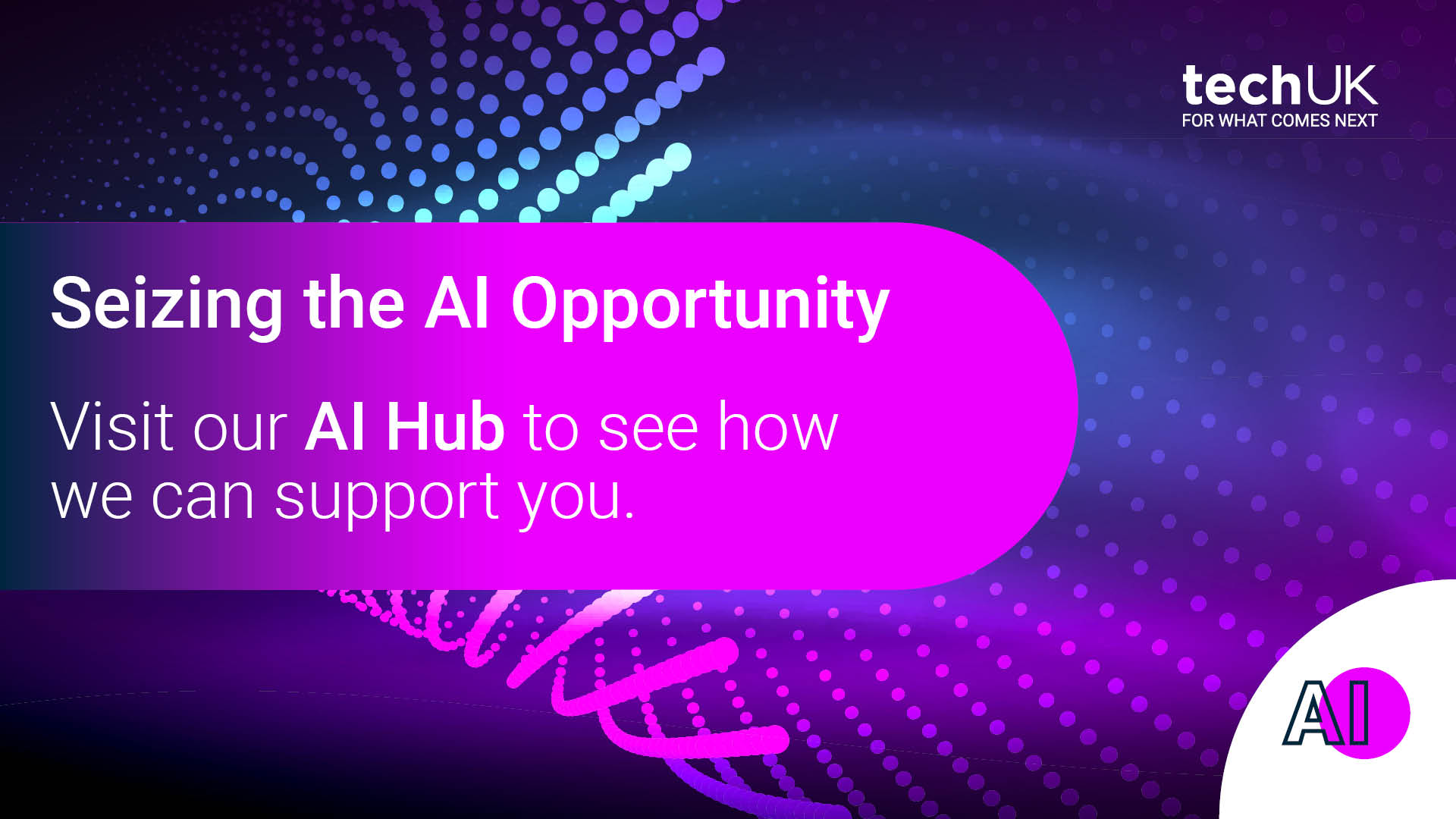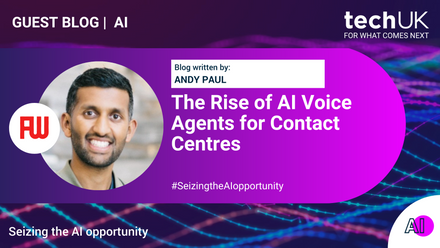AI at scale: What it takes to move from experimentation to execution
Artificial Intelligence (AI) is now in the mainstream, and it's already reshaping industries. Supermarkets like Tesco and Sainsburys are leveraging AI technologies in areas such as predictive inventory tools to enhance efficiency and reduce operational costs. In Financial Servies, our Optimised Design Engine (ODE), uses AI to combat fraud scams and help minimise the number of false positives being generated by fraud detection platforms.
The GenAI market in 2024 was worth ~$20bn, double that of 2023 and is set to grow exponentially more, to a predicted $100bn by 2028 according to new research from Sopra Steria Next.
Yet, while many organisations recognise the potential of AI to drive efficiency, fuel innovation, and unlock new growth, scaling AI to realise these benefits is where the true challenge lies. Adoption is not just about deploying a few pilot projects or exploring use cases - it's about embedding AI into the fabric of the organisation to deliver consistent, measurable impact.
This transition from experimentation to organisation-wide transformation requires more than just technology, or a few SMEs. It calls for a strategic, integrated approach that overcomes real-world barriers - such as fragmented data, unclear governance, an innovation-averse culture, and skills gaps. The organisations that successfully navigate these challenges will be the ones that can seize the full opportunity of AI: driving value at scale and at pace while ensuring ethical and sustainable growth.
So, where do you start?
To make the most out of AI, organisations must prepare to leverage its transformative potential, focusing on effective integration and long-term strategy. Building AI into the journey early and thorough preparation is key to securing future success: organisations that invest wisely now will stay competitive and innovative.
By focusing on the six pillars outlined below, organisations can build a solid foundation for AI adoption. This will enable them to fully harness the power of AI, drive innovation, and achieve ethical, sustainable growth in an ever-evolving landscape.
1. Strategy: setting the vision
Organisations must develop a clear strategy that aligns with business goals. This includes engaging employees, ensuring transparency and fairness, and defining measurable AI objectives. A co-designed vision, roadmap for adoption, and risk mitigation plans, are all essential to maximise AI’s value.
2. Compliance, Governance and Ethics: ensuring responsible AI
With AI’s power comes the responsibility for ethical design and usage that builds trust with employees and users of their products and services. Organisations must establish strong governance frameworks addressing bias, fairness, and compliance, whilst trying to avoid stifling innovation. Navigating this landscape with the right guardrails in place which mitigates organisational risk effectively, ensures human oversight, eliminates single points of ethical failure, overcomes technical limitations, and provides continuous monitoring to address AI inaccuracies that can be introduced over time. The aspiration should be integrated AI ethics as a competitive advantage.
3. Technology and Infrastructure: building the foundation
A forward thinking technology strategy is essential for successful AI adoption, including decisions on Cloud vs On-Premise resources, data storage, and high-performance computing. The infrastructure, models and APIs must scale efficiently and integrate pipelines with existing systems, ensuring robust security and monitoring while managing environmental impact. Having an architectural blueprint that standardises tooling and ML platforms avoids a fragmented estate and ensures AI decisions are traceable and explainable to meet regulatory standards and build user trust.
4. Data: fuelling AI with quality data
Data is the lifeblood of AI, requiring cleanliness, management, trust, and minimal bias. Organisations must prioritise quality and controls to ensure data hygiene. Consolidating diverse sources improves accuracy, enhancing self-service analytics and decision-making for better business outcomes.
5. Expertise: cultivating the right target
Organisations must invest in a skilled and diverse workforce, nurturing existing talent through training and upskilling, while hiring people with specialised AI skills. A workforce that can better identify use cases, safely implement them, and advocate for AI adoption, is essential.
6. Culture: fostering an AI-ready mindset
To gain employees’ support, leaders must promote transparency, share intentions, and highlight AI successes. Creating a change environment which encourages experimentation and knowledge-sharing, fosters innovation and accelerates AI maturity.
Understanding where you stand with AI
Organisations are likely to be stronger in some of these areas than others - they might have excellent ethics and governance in place, but not the infrastructure or culture to back it up. To advance and scale their use of AI, it's crucial for organisations to understand where their strengths and weaknesses lie, and how to close those gaps.
This is where an AI maturity assessment can provide valuable insight.
The Sopra Steria Next AI Maturity Assessment is broken down into the above six core dimensions. It helps organisations evaluate where they are on their AI journey and what they need to do to scale responsibly, unlock untapped efficiency, and lead in AI-powered innovation.
Organisations earlier in their AI journey often take a reactive or fragmented approach, with limited alignment across key areas like strategy, governance, and data. As maturity grows, so does momentum — but without strong coordination, efforts can remain siloed. At the highest levels of maturity, organisations show strategic clarity, cross-functional alignment, and the ability to scale AI responsibly and effectively.
Ultimately, scaling AI for impact starts with understanding where you are—and knowing what needs to be in place to move forward. With the right roadmap, organisations can not only overcome the barriers to AI adoption but also realise its full potential to transform operations, empower people, and create meaningful, measurable outcomes that improve services and develop new products.
What can you do today?
Our AI Maturity Assessment is coming soon. Register your details here to get exclusive access to the tool, and our recommended next steps for your AI journey.
techUK - Seizing the AI Opportunity
For the UK to fully seize the AI opportunity, citizens and businesses must have trust and confidence in AI. techUK and our members champion the development of reliable and safe AI systems that align with the UK’s ethical principles.
AI assurance is central to this mission. Our members engage directly with policy makers, regulators, and industry leaders to influence policy and standards on AI safety and ethics, contributing to a responsible innovation environment. Through these efforts, we help build public trust in AI adoption whilst ensuring our members stay ahead of regulatory developments.
Get involved: techUK runs a busy calendar of activities including events, reports, and insights to demonstrate some of the most significant AI opportunities for the UK. Our AI Hub is where you will find details of all upcoming activity. We also send a monthly AI newsletter which you can subscribe to here.
Upcoming AI events
Latest news and insights
Subscribe to our AI newsletter
AI and Data Analytics updates
Sign-up to our monthly newsletter to get the latest updates and opportunities from our AI and Data Analytics Programme straight to your inbox.
Contact the team
Visit our AI Hub - the home of all our AI content:









